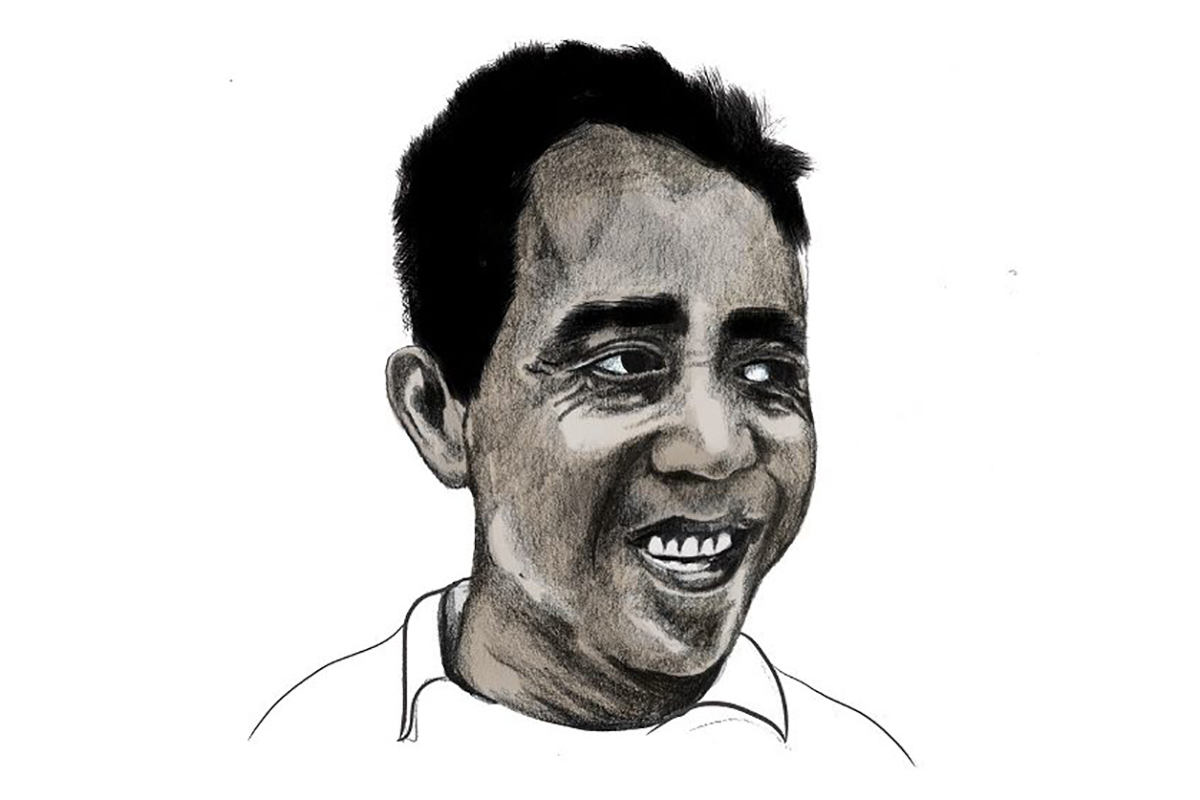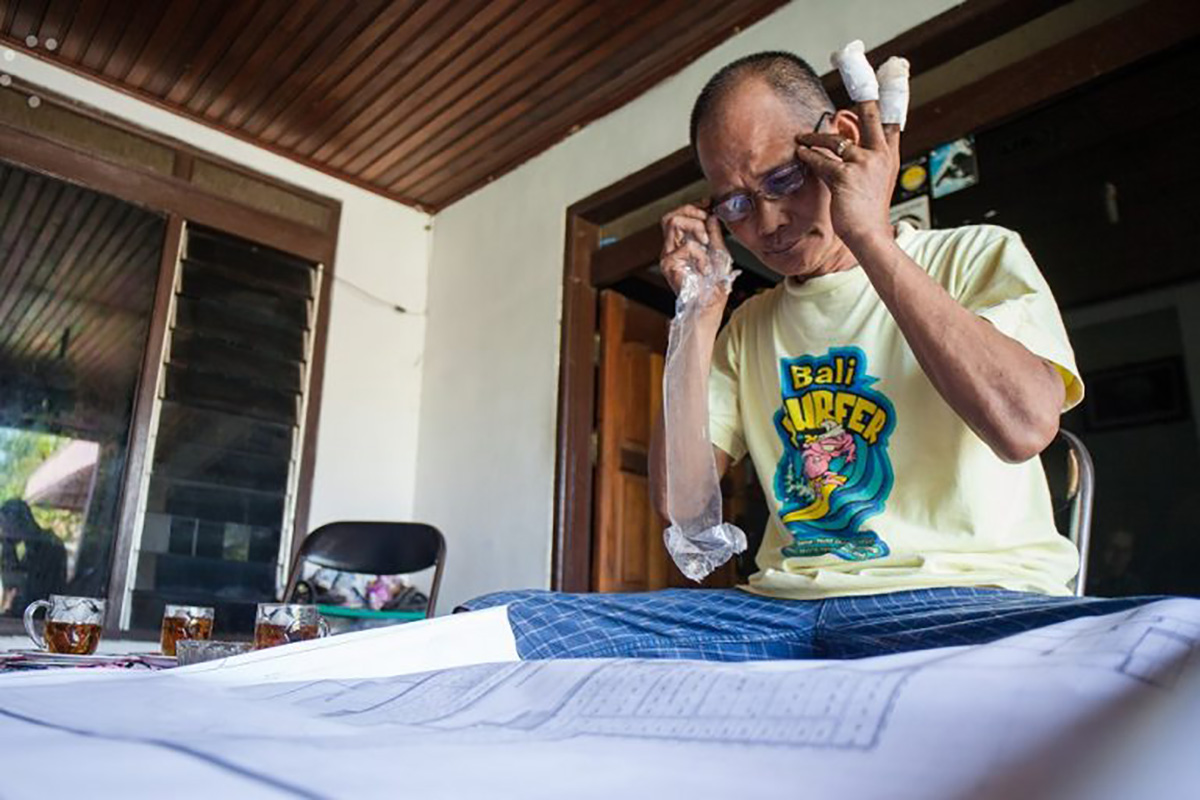The sequence of events after the shell companies were formed tells us two things. Firstly, that the intent was never for the founders to develop the plantations themselves. Between December 2004 and May 2005, Darwan gave 16 of the companies permits for plantations. By the end of 2005, at least nine of them had been sold on to major palm oil firms for hundreds of thousands of dollars. It seems implausible that a series of interconnected people, in many cases family members, would concurrently form companies only to decide that they lacked the capacity to run them. The sole explanation is that they were set up to be sold, endowed with assets from Darwan.
Secondly, it tells us there was a strong degree of coordination in the ways they were both formed and sold. Most of the companies were established within a small window of time, many of them just days apart. Several were also sold within a small period of time some months later.
Eight of the shell companies were bought by the Kuoks in late 2005. Darwan’s family and cronies would eventually derive just under a million dollars from the deals with the Malaysian billionaires. But in these deals, the shareholders linked to Darwan also kept a 5 percent stake in each of the companies, which could make each of them multi-millionaires in their own right.
The evidence Nordin obtained of the connection between Darwan’s family and the companies sold to the Kuoks was first outed in an international NGO’s report, in June 2007. It was just two weeks before two of the Kuok family companies were merged under the name Wilmar International, forming what is now possibly the world’s largest palm oil firm.
Though the allegations regarding Darwan’s licenses only received a brief mention in the NGO report, the whiff of a corruption scandal may have proved too much. In an email responding to questions for this article, Wilmar told us that it had decided to mothball the companies issued by Darwan after engaging with NGOs. It declined to mention when the decision was made, and continued to list the companies in its annual reports as late as 2010.
Triputra Agro Persada, presided over by the young Arif Rachmat, bought seven companies from the bupati’s family. (Triputra declined several requests for an interview, directed to Arif Rachmat, although they did respond to some questions via email.) Four of these companies were later mothballed, but the other three, which were developed, linked directly to Darwan’s son Ruswandi. By the end of 2007, two of these companies had already begun clearing vast tracts of forest, peat soil and farmland. Triputra would emerge as one of the worst oil palm companies in Seruyan for people and the environment, in a crowded field.
Marianto was certain that Darwan had betrayed his constituents. By the time he met the whistleblower in early 2007, the plantation boom was fully underway, yet the average Seruyan resident remained worse off than in the era of logging. Now, the only option for many farmers was to earn a pitiful wage as a labourer on one of the estates. They were losing their farmland, the destruction of forests deprived them of food and other resources, and fishing grew increasingly difficult in polluted waters. Above all, the promise that the mega-plantations would be accompanied by smallholdings for the farmers, thereby cutting them in on the spoils, went undelivered.
Marianto placed the blame for the problems that were emerging at Darwan’s door. The bupati had the power to revoke licenses as well as issue them; if he was motivated to do so, surely he could force the companies to deliver for Seruyan’s people? The leak confirmed that his motivations lay elsewhere.
Indonesia’s Corruption Eradication Commission, the KPK, born after the fall of Suharto, was emerging as a new force in the fight against graft by public officials. In June 2007, as Indonesia passed Malaysia to become the world’s top palm oil producer, Marianto packaged up his findings and travelled to Jakarta to deliver them to the agency in person.
As 2007 drew to a close, delegates from around the world arrived on the Indonesian island of Bali for the 13th annual UN climate change conference. The fate of the earth’s forests was firmly on the agenda. But in the high rises of Jakarta a different game was afoot. Four days before the UN summit began, as Darwan Ali prepared to campaign for his first direct election, his son Ruswandi stepped into the Kadin Tower for his meeting with Arif Rachmat, to cut another deal with Triputra.
After Suharto resigned there was optimism that the grand larceny of his regime would recede. It was hoped that the rapid decentralisation of authority would shift accountability for political decisions close to the people affected by them. But by 2008, the year of the first direct vote for bupati of Seruyan, it was increasingly clear that corruption had simply been moved down through the system.
In a forthcoming book entitled Democracy for Sale, political scientists Ward Berenschot and Edward Aspinall write that Indonesia’s districts came to be dominated by “a netherworld of personalised political relationships and networks, secretive deal making, trading of favours, corruption, and a host of other informal and shadowy practices.”
Elections were a cornerstone of this game. They had become hugely expensive affairs, with the cost proportionate to the amount of power over lucrative projects or natural resources the winner could dole out to supporters. For bupatis governing land- and forest-rich districts, they routinely ran into the millions of dollars. Berenschot, Aspinall and other academics who have studied Indonesian elections over the past two decades have identified a uniform, systematic process by which candidates spend their money.
First, they pay off officials in their political party to ensure their selection as a candidate. Next, they recruit an extensive group of political activists and influential figures to join their “success team”. Then they provide cash for the success team to buy up the support of local powerbrokers – village chiefs, religious leaders and the heads of sports clubs who enjoy extensive influence in some places. These individuals in turn solicit the support of people within their own spheres of influence.
Candidates organise expensive rallies and concerts, paying for popular singers to perform and handing out free meals. Finally, they engage in what is generally referred to as a “dawn attack”, organising dozens of supporters to hit the streets and knock on doors, handing out money directly to voters to solicit their endorsements. This, Berenschot told us, is the costliest part for candidates. He estimated the price of running for bupati at between US$1.2 million to US$6 million.
The funds come from local businesspeople and contractors, in the expectation of rewards if the candidate is successful. “After the election, it is payback time, and campaign donors and workers can expect to be rewarded by winning candidates with jobs, contracts, credit, projects and other benefits,” write Berenschot and Aspinall. But they also note that incumbents start from a position of advantage, having built up a “war chest– typically by engaging in various forms of corruption,” for the next election. “The exchange of favors and material benefits at every stage of the electoral cycle is so pervasive that it is apt to think of democracy in Indonesia as being for sale.”
By his own admission, Hamidhan Ijuh Biring, the husband of Darwan’s niece who obtained a license from the bupati, played such a role in the 2008 campaign. At the time, Hamidhan told us, he already believed that Darwan had ripped him off. But he still thought he could be rewarded if the incumbent retained his seat, and he was in on the winning ticket.

Hamidhan Ijuh Biring
Hamidhan told us he contributed US$50,000 to Darwan’s campaign ahead of the election. He understood he was joining a cast of characters who had benefited personally from the bupati’s patronage: building contractors to whom Darwan had handed lucrative projects without public bidding, which was then legal; plantation bosses who could instruct their workers, many of them migrants from other islands, to vote for the incumbent. In the dawn attack, he said, cash worth US$10 to US$25 would be attached to the back of instant noodle packets and distributed to voters.
“The exchange of favors and material benefits at every stage of the electoral cycle is so pervasive that it is apt to think of democracy in Indonesia as being for sale.”
In February 2008, Darwan won the election and resumed his position as bupati of Seruyan for a second five-year term. To celebrate, his brother Darlen organised a concert near the lake, featuring the singer Rhoma Irama, known as the King of Dangdut. No one had stood a chance of making a meaningful challenge to Darwan given the spending advantage provided by his hold on the bupati’s chair. He prevailed despite a brewing storm, as resentment of the plantations grew. The consequences of the land deals he presided over would soon become fully apparent to the people of his district. – to be continued.
Photos by Leo Plunkett, Sandy Watt, Tom Johnson and Sam Lawson. All other illustrations by Sophie Standing.
This article was curated jointly by the environmental news website Mongabay and The Gecko Project, an investigative journalism initiative established by Earthsight. The article is part of an investigative series entitled Indonesia for Sale.
Recommended stories:
